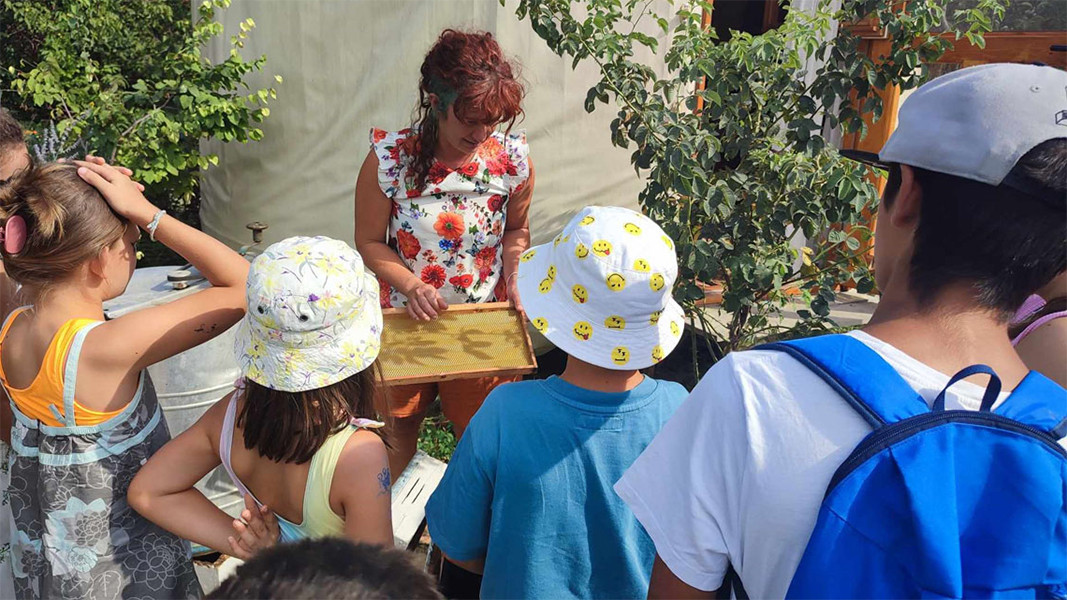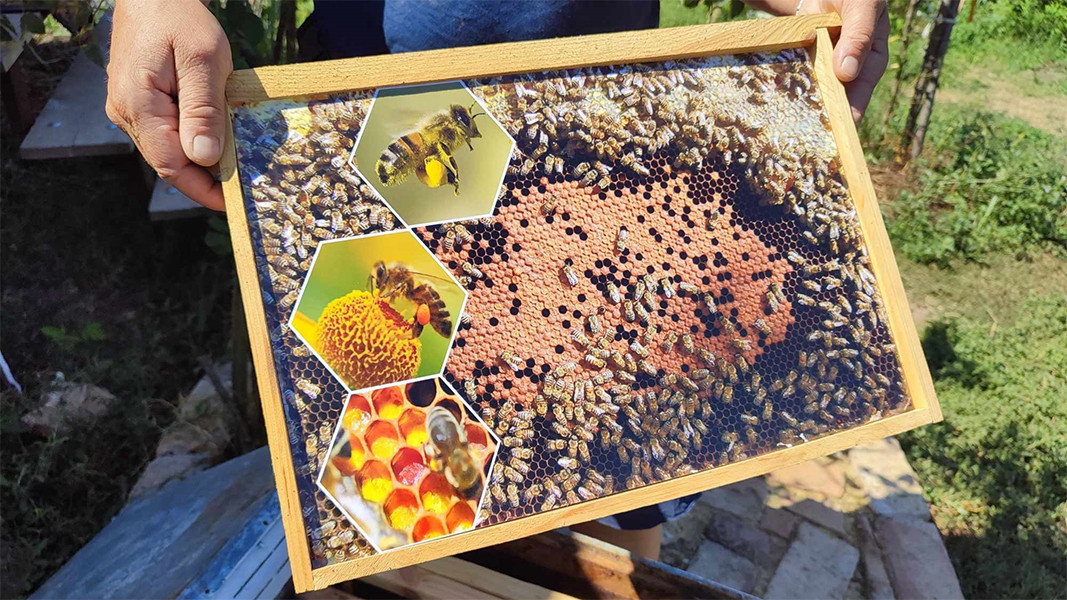The village of Ezerets (Shabla Municipality) is hosting an eco-camp with the participation of educators, animators, ecologists and young people from all over the country. The young people are exploring the mysterious world of bees.Over the course of four days, until September 1, they are to learn how to makea straw hive and participate in beekeeping activities.The initiative is being held as part of the project "Get to Know the Bees, Protect Your Future."

The organizers have filmed a short educational movie at a beekeeping farm, which showcases the life of bees and their connection with agriculture, biodiversity and people. Interactive games are used to introduce young people to the structure and significance of bees, following a model borrowed from a French educational methodology, which is to be introduced in Bulgarian schools and community centres.
“Adopt a beehive”, an initiative that helps bees and beekeepers
Beekeeping University to help nature lovers take their first steps in the apiculture sector
Beekeeping - an invaluable factor for health, yet not a priority sector for the Bulgarian state

Bees are among the most important living beings on our planet, but their survival is at risk due to climate change, urbanization and unsustainable agriculture.The eco-camp in Ezerets aims to raise awareness and engage the next generation with this critical issue, said the organizers from the "Public Center for Environment and Sustainable Development".
Photos: Facebook/ecovarna
The Sofia Zoo has a new resident – an 11-year-old male snow leopard, BNT has reported. He comes from Nordens Ark Zoo, located in Bohuslän, Sweden and is named Araatan. Some time ago, a female leopard arrived from the Helsinki Zoo,..
20 nominees from 11 countries – that is the number of contenders for the “Bulgarian Woman of the Year 2024”, named in honour of Saint Zlata of Meglen . The award has been presented every year since 2009 by the Executive Agency for Bulgarians Abroad..
An initiative committee led by the historian Georgi Markov, has proposed that a monument to Khan Asparuh, the founder of the Bulgarian state, be erected on the site of the former Soviet Army Monument in Sofia, in order to serve as a unifying symbol for..
When a contribution in the sphere of science is transformed into the basis for subsequent in-depth research the boundaries between countries and..
The virtual space where you can find information about Bulgarian restaurants in Berlin, the services offered by Bulgarian craftsmen, as well as addresses..

+359 2 9336 661
